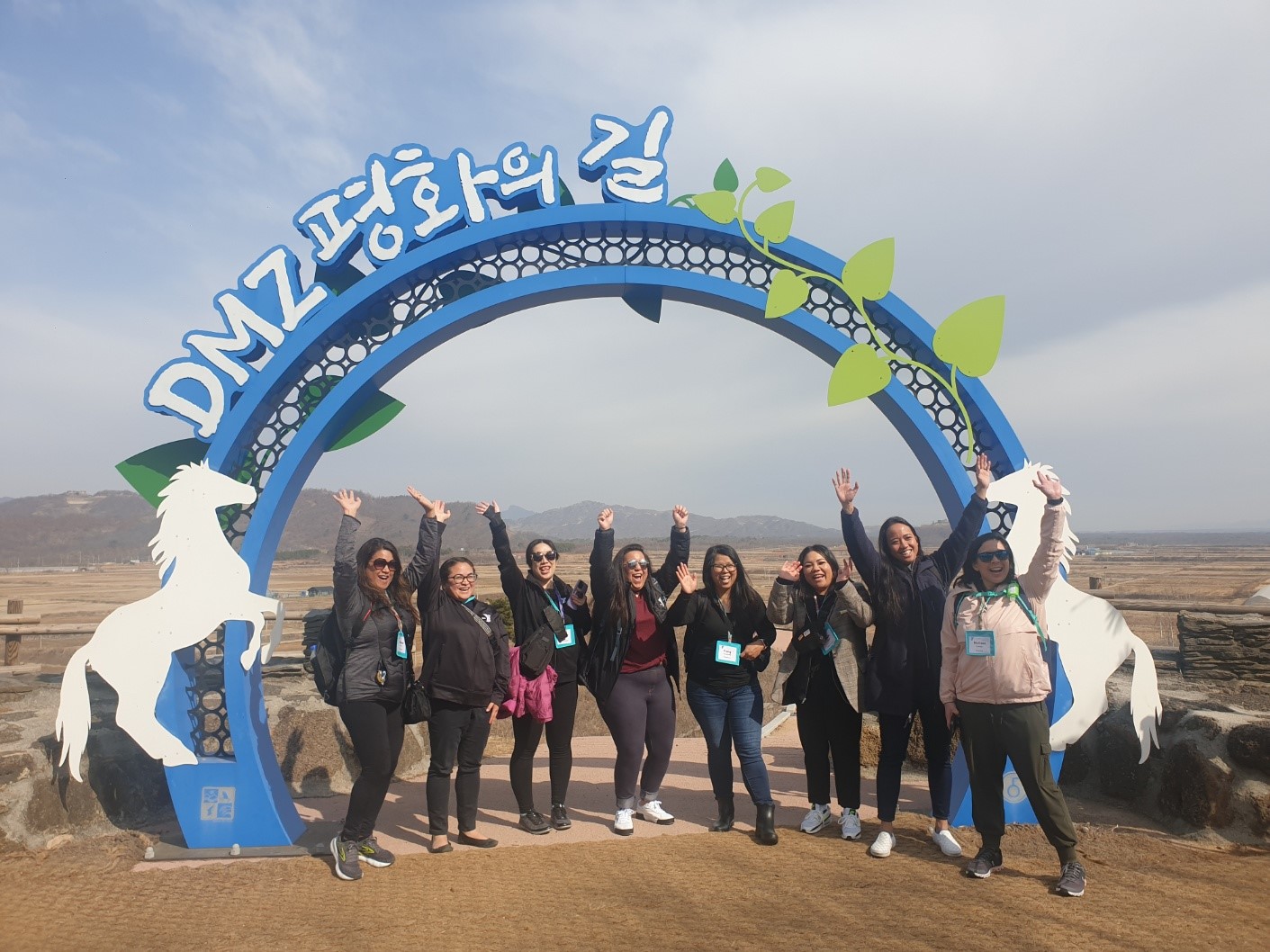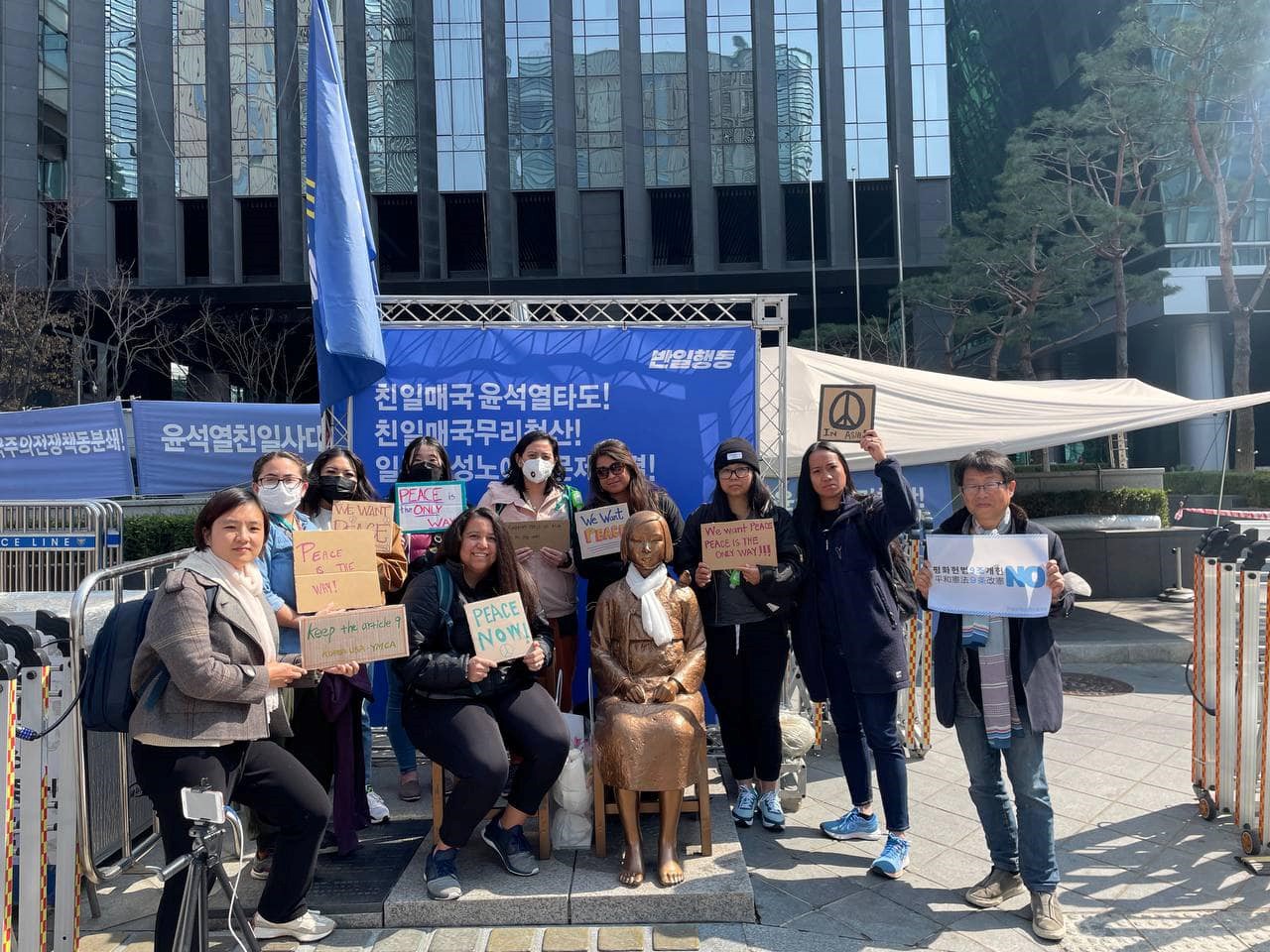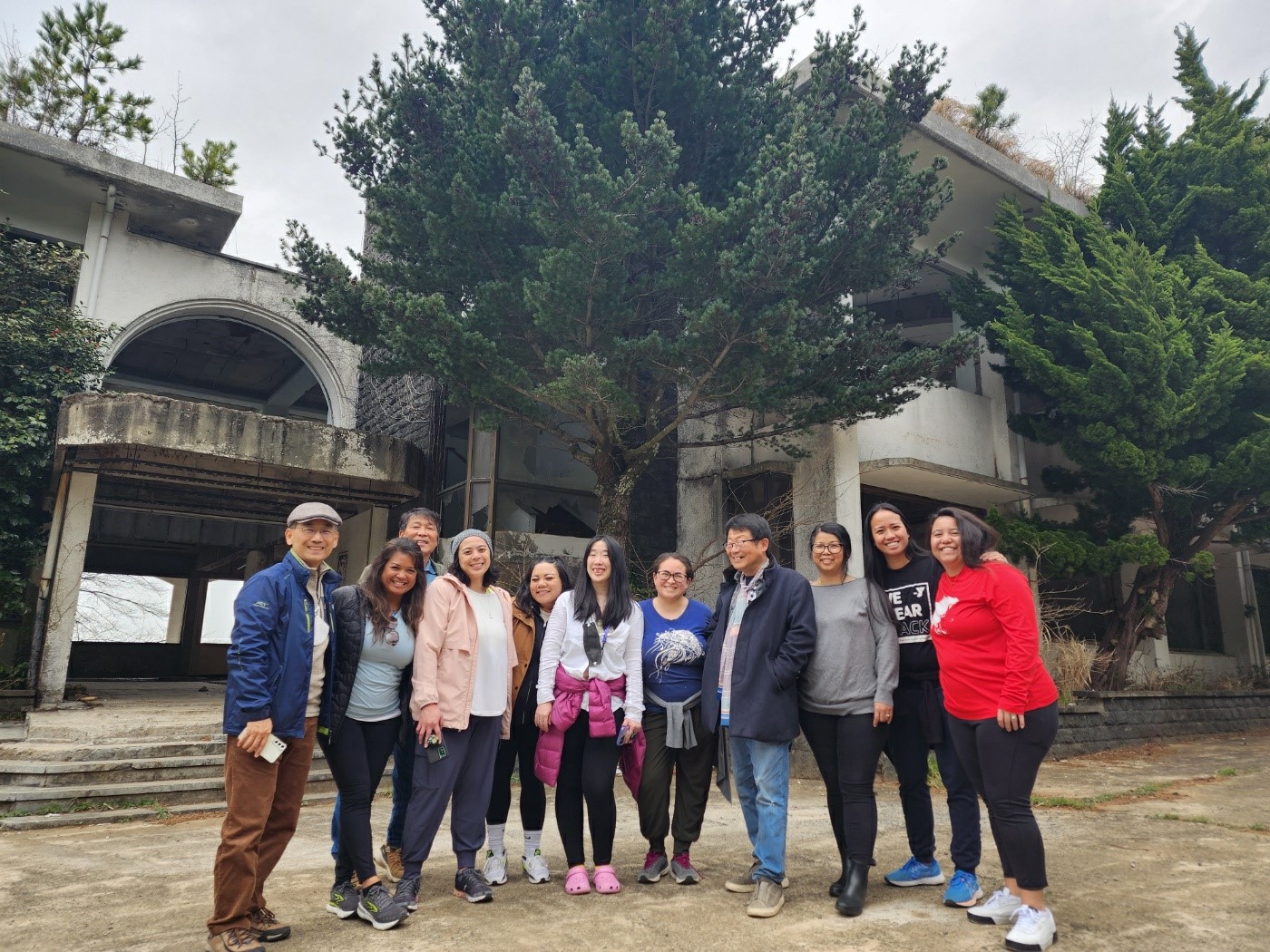Asian Pacific Islander Leadership Network (APILN) paid a visit to YMCA Korea and APAY office in Jeju in construction
Last Updated (Friday, 31 March 2023 12:08)
From 16th to 21st March 2023, eight members of the Asian Pacific Islander Leadership Network (APILN) International Leadership Institute (ILI), led by Trang T Hill, a staff of International Group, YUSA, paid a visit to the NCY-Korea and the APAY Jeju office that is under construction in the campsite of the NCY-Korea. The APILN is a network of YMCA professional staff in the U.S.A. whose family background traces back to Asia and the Pacific islands.

After settling in Seoul, the group first visited the Demilitarized Zone (DMZ) area guided by NSG Kim Kyung Min and International Secretary Daeun Yang. They first visited the memorial tower of the Baengmagoji battlefield, where the bloodiest fight took place during the Korean war. They learned about the tragedy of the Korean war, where Korean people fought fiercely, killing each other. Then they visited Cheolwon, the Korean Labor Party Headquarters, one of the remainders of the Korean War, constructed by North Korea before the War. Thereafter the group went to a village inside of DMZ. To go inside the DMZ area, they needed to report their personal information ahead of time and checked by South Korean soldiers. They visited the Geumgansan Mountain Electric Railroad Bridge that once operated connecting the South and the North but disconnected after the division. They also visited Border Peace School to have an on-the-ground experience about the tragic history and reality of the divided Korean Peninsula as a result of the ideological conflict and ensuing Korean War in the 1950s. The visit to DMZ was an eye-opening experience for the group as US citizens whose national influence reached far on the Korean peninsula from then up to date.
Next day, they also visited the Japan Embassy where Korea-Japan Reconciliation and Peace Platform’s 19th Peace Action took place. The Korea-Japan Reconciliation and Peace Platform consists of about 2,000 civil and religious organizations in Korea and Japan and has done the 19th Peace Action together to protect the Article 9 of the Japanese constitution, which declares not to attack other countries and have a war for Japan. The group came to understand the deep scar and wounds during the Japanese colonial rule still deeply situated in the minds of the Korean people. Every group member participated in 19th Peace Action with their own pickets made by themselves. The picture of their action and messages were sent to the Japanese civil societies.

On March 20, the group flew to Jeju Island to visit the APAY Jeju office that is under construction since last October. Nam Boo-Won, General Secretary of the APAY, shared his new vision of inviting and training young people from all over the YMCAs to become “Climate Defenders” and “Peace Builders” once the Jeju office building is completed alongside Global Peace and Ecology Center (GPEC).
GPEC is also for international youth to discuss life, ecology, and peace building strengthening international solidarity in an era of climate crisis. The Korea YMCA is committed to develop this center for youth to enable them to discuss and imagine the world where nature and people live in harmony. The GPEC plans include an international campground for youth to build network and solidarity for youth climate-activists. It will operate various global exchange programs on life, peace, and community. The funds for the center are also raised by the YMCA of the USA in cooperation with the Korea YMCA and APAY.
The group also visited various historical places in Jeju learning about the history and culture of Jeju. They especially were interested in Hae-nyeo, a unique job of Jeju, refers to the Jeju women who earn their living by diving into the sea to get clam, sea cucumber, sea urchin and many other sea animals from the bottom of the strait. These women have been doing this job for the past 1700 years and are considered an aberration in a typically male-dominated Korean society. These women established diving to be an exclusively female occupation. Hae-nyeo represents the strength and resiliency of women in difficult situation and the group got inspired by the story of them.

Then they visited Jeju YMCA to observe its various programs and facility. The main program of Jeju YMCA is the YMCA kindergarten where children are raised with a principle of integration of mind, body and spirit. The head of the kindergarten explained that the programs are focused on playing and nature, so the children can develop their physical and emotional competency naturally and build a sense of harmony with nature by experiencing nature in daily bases. The children sang a song for the group to welcome them too which made the group happy. The last day dinner was hosted by Jeju YMCA where President Kim Jong-duk and General Secretary Song Kyu-Jin were present. That night, the group had a special and final debrief session with GS Nam boo-won, where every group member shared their experiences and reflections in Korea and ask questions to GS Nam in terms of YMCA movement in Asia and the Pacific area.
On their departure, all the members with Korea YMCA hosts agreed to develop further collaboration and partnership on common agendas and program areas such as youth empowerment and global citizenship education.
By Daeun Yang, International Secretary, NCY-Korea





